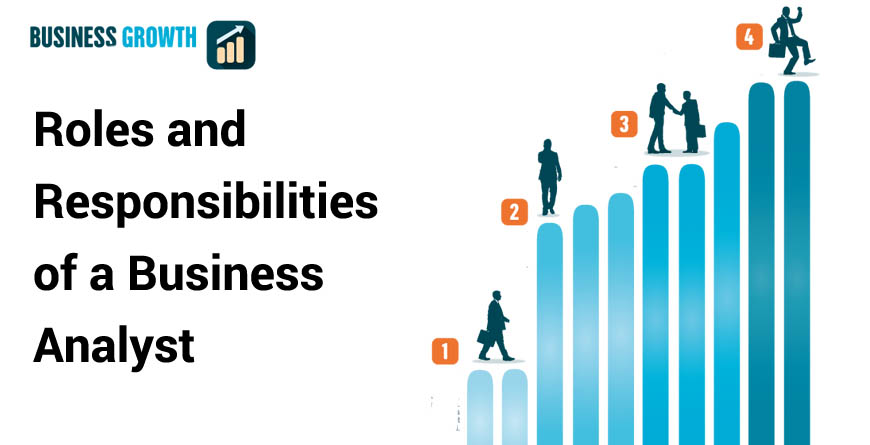
Roles and Responsibilities of a Business Analyst
- A Business Analyst (BA) is someone who analyzes an organization(real or hypothetical) and designs its processes and systems, assessing the business model and its integration with technology.
- The role of Business Analyst can also be defined as a bridge between business problems and the technology solutions. Here business problems can be anything about business systems, for example, model, process, or method.
- The technology solutions can be the use of technology architecture, tools or software application. So Business Analyst’s are required to analyze, transform and ultimately resolve the business with the help of technology.
- The Business Analyst has come to become a person of great value to an organization, and who is the generalist capable of functioning competency in diverse roles. Typically, these people have a broad educational background and a diverse skill set with a wide range of work experience in different jobs and industries.
- Business Analyst is able to visualize the “The Big Picture”- that is – understand the business from different perspectives, as well as the technology side of what can be effectively used to improve the business.
- The Business Analyst skills in a broad perspective comprise of the person being a Business Planner, System Analyst, Project Manager, Subject Area Expert, Organization Analyst, Financial Analyst, technology Architect, Data Analyst, Application Analyst, Application Designer and Process Analyst.
- The role as “a liaison among stakeholders in order to understand the structure, policies, and operations of an organization, and to recommend solutions that enable the organization to achieve its goals.”
- In some Organisations, a Business Analyst is someone who is part of the business operation and works with Information Technology to improve the quality of the services being delivered, sometimes assisting in Integration and Testing of new solutions.
- The BA may also support the development of training material, participates in the implementation, and provides post-implementation support. This may involve the development of project plans and often requires project management skills.
- BA’s work in different industries such as finance, banking, insurance, telecoms, utilities, software services and so on. Due to working on projects at a fairly high level of abstraction, BA can switch between industries.
- Business Analysts do not have a predefined and fixed role, as they can take a shape in operations scaling, sales planning and strategy devising or even in developmental process.
A business analyst consults with companies to initiate changes that enhance the company’s financial success. Once hired, a business analyst gathers information about a company by observing the day-to-day routines of the employees, looking at the company finances and reading company documents. He then makes recommendations to the company on how to save budget. He may suggest cutting or modifying a program or job position. He advises the best way to implement his suggestions strategically, so there is little disruption in the company’s operations. The business analyst’s education prepares him to make the best suggestions to the company for increasing the bottom line.
Watch Video on Roles and Responsibilities of a Business Analyst



